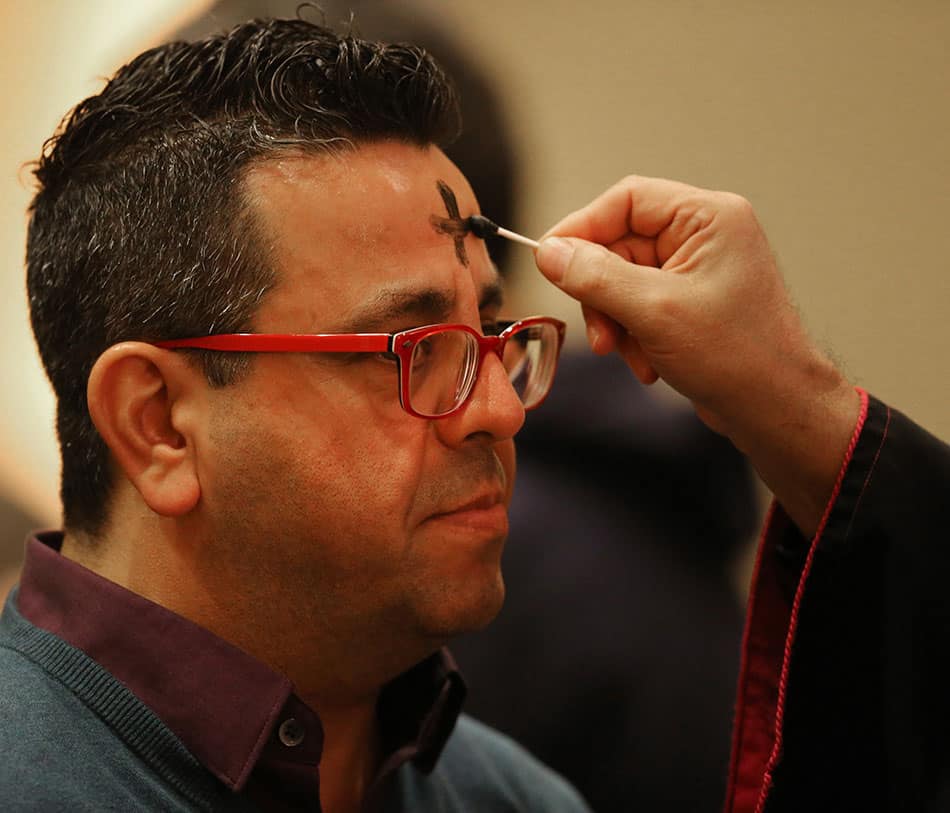
To sense the presence of God always and everywhere is the essence of Maronite spirituality.
The knowledge that His hands always hold us, His eyes are always upon us, and His ears always hear us, is the unstated assumption of the Maronite religious culture. This is why Maronite villages are decorated, at every corner, with shrines maintained by the faithful; and why houses are decked with the crucifix, icons and statues. They are visible reminders to give heed to the invisible reality.
And with that, we treasure the understanding that because of the Eucharistic miracle there are sacred places: namely, the churches where His Holy Body is found on the altar and in the Tabernacle. So the divine presence comes among us with a special intensity in the Divine Sacrifice.
Maronite fire
This makes our faith a very serious matter to Maronites: it is one thing to share the beliefs with other people, it is another to hold them with a burning zeal as individuals and as a people. That fire is an integral element of authentic Maronite spirituality.
The sacraments, from Baptism through to Extreme Unction (anointing of the sick), fit us for the reception of Holy Communion, to lead fitting Christian lives and to make worthy deaths. They therefore bring divine graces to us with a special force and application. They make us fit to go out into the world and to find in it the limitless presence of God. They give us an experience of the divine which we can then recognise in the world. Maronite spirituality therefore looks not on the world as divine, or on God as present in His creation exactly as in the sacraments, but on the world as a shadow from the light of God, over which He watches.
Jesus – the centre of history
The world in fact reveals the pattern of heaven on earth. The centre of all human history and all human society is found in Our Lord Jesus Christ, the Holy Family of Nazareth, and the community of the first Christians. Not only the Old Testament, but all of history – irrespective of when it happened – takes its meaning from the Incarnation. Our human families should be modelled on the Holy Family in order to achieve their most perfect possibilities. All our actions, even our political, economic, and social choices, should be influenced by our desire to be united with God. This is the basis of the ancient theological approach we call “typology”.
All our actions, even our political, economic, and social choices, should be influenced by our desire to be united with God
Because the Maronite church was established around the monks of the monastery of St Maroun, its entire spiritual outlook is monastic, that is, totally devoted to God and to His service. The monks led their people to leave their homes and join them in a pilgrimage to Mount Lebanon in order to live in freedom to practise the faith. Like the people, the monks worked the land. The people joined their monks in their churches every morning and every evening. Even if they were working, they would often fast during the daylight hours, breaking their fast only at the vigil Mass. Today, we no longer live with the same intensity, but the heritage of that spirit still abides with us. Our religion even permeates the language we use far more than it does in Western culture, so that common sayings and phrases are for ever evoking God.
A sense of community
Our shared history as a monastic Church gives us a sense of a community. We are a people, a single people, not just because of a Lebanese background: after all, an increasing number of Maronites have no Lebanese connection at all and we meet more and more who have no Middle Eastern heritage whatsoever. But we are branches joined to a tree which has a specific historical story with a lesson and that lesson is to hold to the faith of our ancestors. To put it another way, loyalty and fidelity still mean a great deal to Maronites – and they are positive cultural values, stronger than the more individualistic strains which Western secular culture has favoured.
Monastic roots
The monastic background to the Maronite faith also leads us to a spirituality of prayer, both public and private. God is everywhere, and in prayer, we turn to Him with confidence. He is not distant. If He seems hidden it is because He is closer to us than the mind can imagine. Therefore, it often helps to abandon our subjective ideas, and to approach Him through the religious emotion of piety. This is not ordinary emotion, or sentiment, or feeling of being good. It is the distinct sense which only a believer can possibly know of approaching the presence of God. And so, this short discussion of Maronite spirituality brings us back to where we began: the presence of God in the world and in the sacraments.
Related
